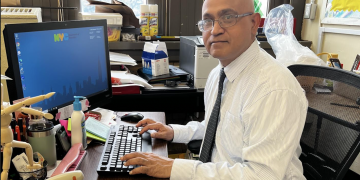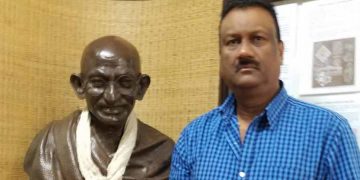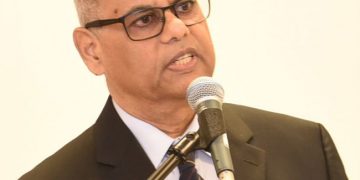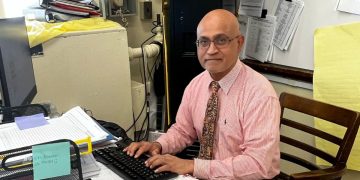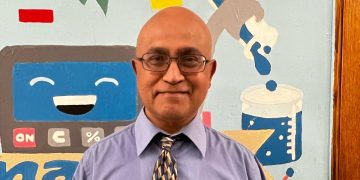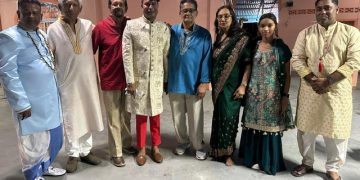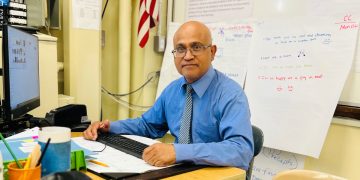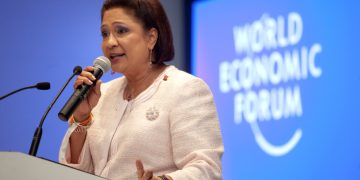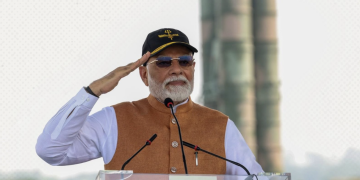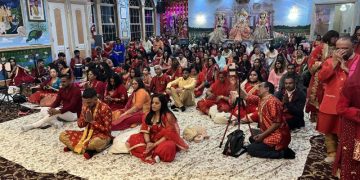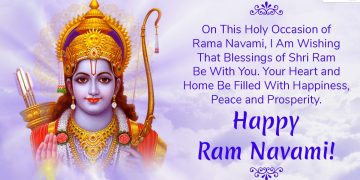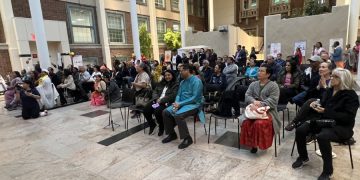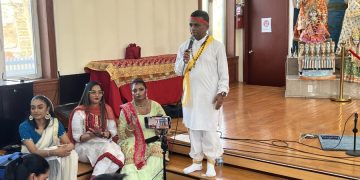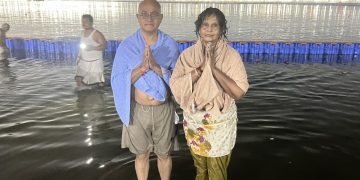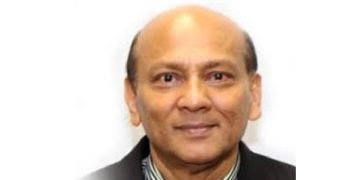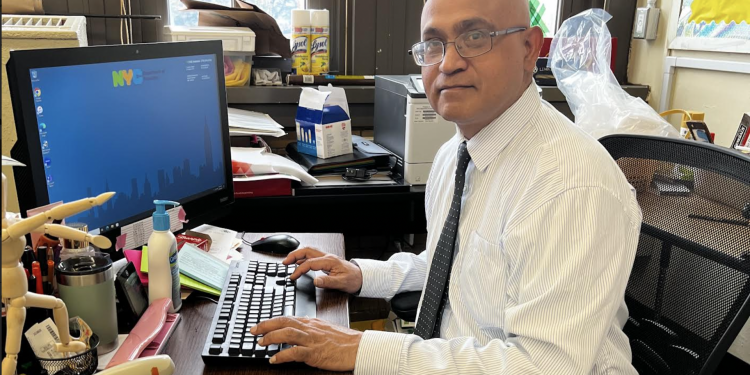Coming from a racially polarized nation like Guyana where Indians suffered racial discrimination, as was also the claim of Indians in Trinidad, it was natural for Caribbean Indians in the USA, Canada, UK and elsewhere to seek comfort in the company of fellow Indians (nationals). But when I arrived in New York and enrolled as a college freshman student as a 17-years old in September 1977, there were no (Indian) Guyanese or Trinidadian student organizations (Clubs) to guide or assist or provide support with the travails of student life. Students were left on their own to overcome challenges until a study body was founded by a small group of us in NYC.
There were community religious groups (centered around Hinduism or Islam), holding loose meetings and religious functions or celebrating festivals at the residence of members or a rented room at a hotel. But there were no student groups. A Guyanese/Trini Club had existed at Mankato State College (University of Minnesota) on the outskirts of Minneapolis but became defunct after the students graduated by late 1970s/early 1980s. There were also loose gatherings or discussion groups of Indian Caribbean students at some universities like Howard, Fordham, etc. during the late 1960s and early 1970s. An India Students organization was formed at Columbia University since the late 1960s hosting Bollywood movies (on Fridays and weekends) and organizing other India related (observe festivals and celebrate national days) and NY Indian (South Asian) community events; Caribbean Indians attended events especially Bollywood movies.
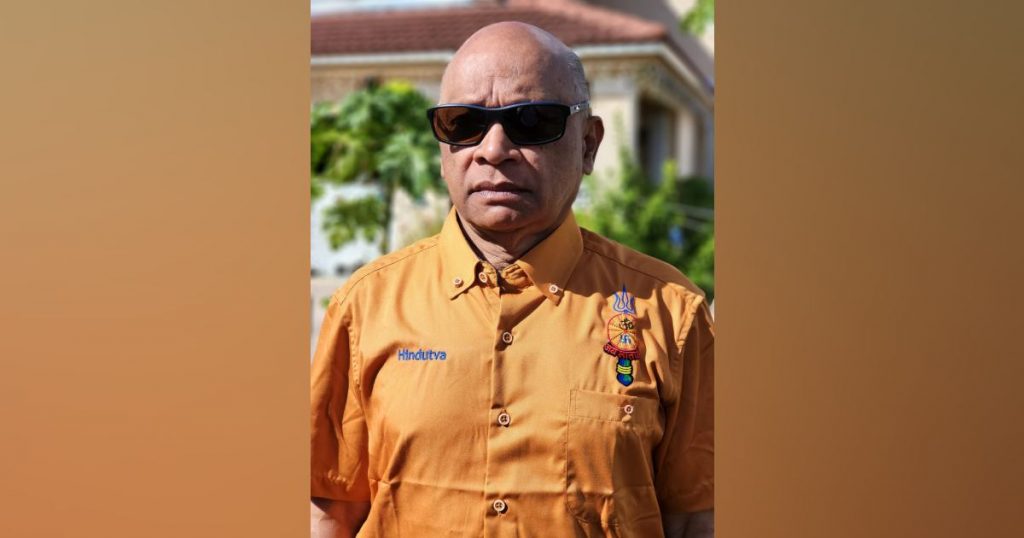
There was no community mindedness and community-spirit among Caribbean Indian students in the NY area although Indo-Caribbeans used to meet for religious events in areas where they resided (downtown Manhattan mostly); Pandit Oumadatt Maharaj hosted a mandir at the basement of building on Jerome Ave in South Bronx in the late 1970s. A group of Indo-Caribbean students (including me) from Guyana and Trinidad at CCNY met to discuss the lack of an Indian student body. They decided to fill the void by launching an Indian students club at City College of NY. Their pioneering efforts would lead to the proliferation of Indian student clubs at other campuses (Hunter College, Brooklyn College, Lehman College, NYU, etc.) around the city and New York State and around the rest of the country. The few of us who founded the first Indian Caribbean students club went around to area colleges encouraging students to form a Caribbean Indian student club as well as to seek elective office in student government.
Indian students (Guyanese, Trinis, those from India, Africa, and elsewhere) were un-wanted and unwelcomed in other ethnic or regional organizations at City College. Almost all the 100 student organizations were ‘ethnic’ in nature (centered around a national group or race, or region or religion) except for a handful of clubs that were issues or academic subject oriented.
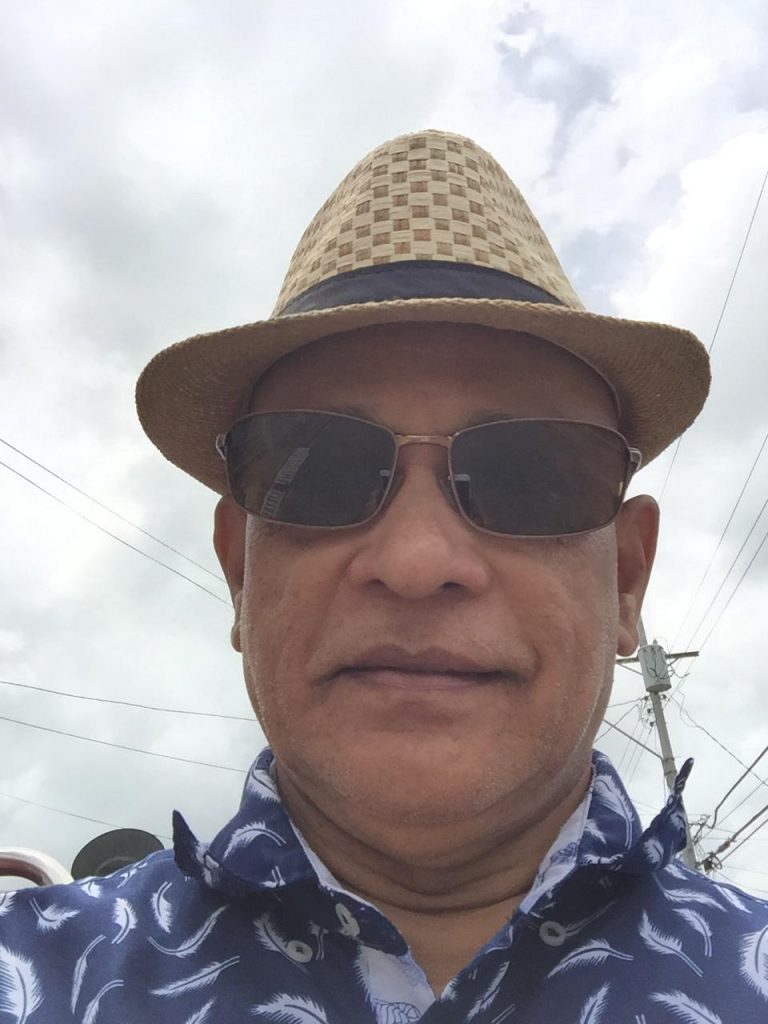
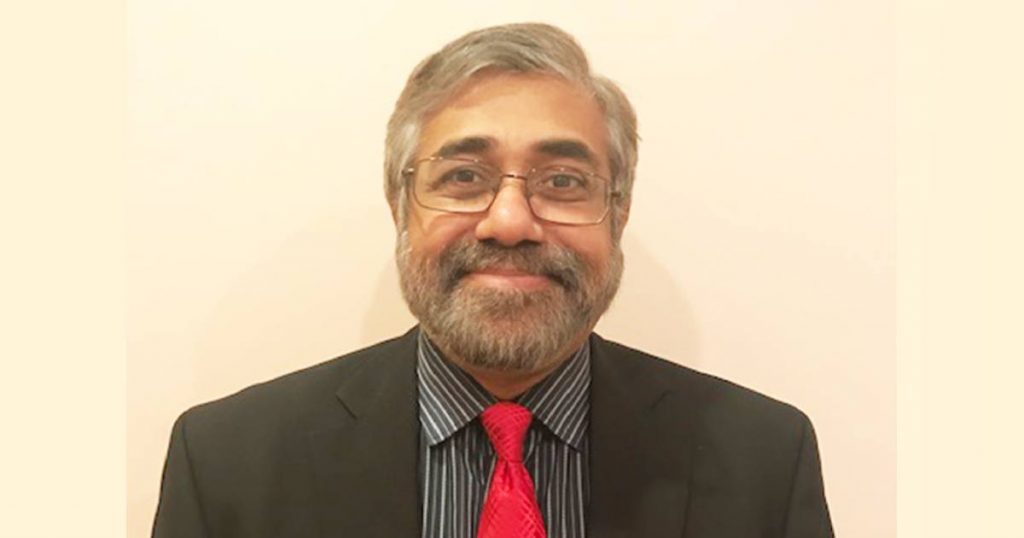
Initially without a Caribbean Indian club in place, Caribbean Indians at City College (Convent Ave, 130s Street in Manhattan) were naturally attracted to the Caribbean Students Association (CSA) and India Club (not sure when they were formed). Indo-Caribbean students could belong to both clubs since they were classified as being both Caribbean and Indian. The CSA, with a Black Caribbean advisor (Prof Edward Scobie) from the Black Studies Department, and India Club (with Prof. Ramchandra Varma of Sociology department serving as advisor of India Club) were allocated their own office space where they held meetings; classrooms could also be reserved for meetings. Meetings were advertised.
At the first meeting of the Fall term in 1977, some Caribbeans Indians (myself included) responded to a flyer announcement and attended the CSA meeting during Thursday club hours as we thought that as Caribbean people we belonged there. The meeting was very Afro-centric and pan-Africanist in nature discussing issues impacting on Black West Indians and Africa. It was as if Indians didn’t exist in the West Indies. Through their body language and how they stared at Indo-Caribbeans, t was clear that Black Caribbean students were uneasy with our presence. It didn’t take long for us to recognize that Indo-Caribbeans were not welcomed in CSA. One Afro Caribbean student leader went as far as saying “Indo-Caribbeans are not West Indians, you are Indians”. The unwelcome reception and hostile words of Afro Caribbean students ended Indo-Caribbean presence and participation at the CSA although we did attend lectures by Caribbean leaders (like Michael Manley, Maurice Bishop, Ralph Gonsalves, among others) that were co-hosted by the CSA, our group, and student government.
Indian Caribbeans were also naturally drawn to the India Club because of racial affinity (India being the ancestral homeland of Indo Caribbeans). The club was allocated club space in Finley Student Center, south campus. Almost every club had office space (a room to hold meetings) and to store files. Club hours were Thursdays (12-2). Discussions at meetings I attended centered around India and matters relating to students from India with virtually no engagement on issues facing Indian Caribbean students or Indians in the Caribbean. There was also no discussion on India’s Emergency Rule or the change in Administration that brought the Janata Party (Morarji Desai) to power. The students from India were not interested in politics and or knowing about the difficulties that Indo-Guyanese or Indo-Trinis faced in their homeland. They strictly stuck to their studies. Like the Black West Indians, Indian nationals also appeared uncomfortable having Indo-Caribbeans in their club and vice versa; somehow indicating we don’t belong there. At any rate, aside from having short weekly meetings and speaking about general matters relating to student issues, the club was not very active (like observing all Indian festivals and celebrating Republic Day or India Independence Day as we Indian Caribbeans did as a religious duty). The Indian nationals were not interested in addressing problems facing the Indian diaspora; very few Indian nationals knew that Indian communities are in the Caribbean, Africa, and other places. When told we are from Trinidad or Guyana, they would ask which state (in India) those districts or villages were located. As the Indian nationals noted and reiterated, they were in college to study not to solve problems facing Indians in India and America and other parts of the globe and or the government of India. In short, India Club did not serve the needs, concerns, and goals of Indo Caribbeans or diaspora students. Unlike them, Indo Caribbeans were “Indian culture” conscious and community minded and were interested in activities that would strengthen their culture and embrace of Mother India. With the India Club not meeting their needs, inevitably, Indian Caribbeans lost interest in the club and stopped attending meetings. The last attendance was Diwali 1977 with prayers, the lighting of a deya that I took to a meeting on campus to celebrate the festival, and distribution of sweets and traditional delicacies.
A small number of Indo-Caribbeans (Vassan Ramracha, Baytoram Ramharack and a few others) held loose discussions in an empty classroom in Finley Center on how to organize the many Indian students on campus. A structured group was needed to champion their interests and address concerns facing the Indian community in America and abroad. Indian students from the diaspora had no club at CCNY or on any campus with which they could identify and or to appeal to address their problems and challenges. They wandered around the CCNY campus or in the cafeteria during club hours hanging out with friends or acquaintances without meaningful purpose or spending time in the library. They had no formal meeting place to socialize or have discussions or to come together in solidarity over issues. Since there was no pan-Indian student organization, akin to a pan-African student organization, to champion the needs and interests of diaspora Indian students comparable to those of other groups, a few of us who were meeting ad hoc on almost daily basis to discuss Guyana and Trinidad issues felt there was a need for an Indian student club. We decided to formally launch such an Indian student club. We felt it was necessary to have such an organization that would offer identity for Indians as well as provide us with an office to hold meetings and store files. A constitution was drafted and submitted for approval by the Student Director of Extra Curricular Affairs (Dean Ed Sarfaty) and to the undergraduate student government. Recognition was granted by both entities and the club was formally launched with a meeting and serving of refreshments.
It was called Indo Club because it was all-embracing and encompassing of all ethnic Indians regardless of nationality. Its primary focus was to address issues confronting Indians in USA, Caribbean and elsewhere, and the concerns of Indian students on campus in addition to matters pertaining to India. The executives (Vassan, Ramharack, me and others) went on a membership drive, recruiting members by word of mouth as well as through leafleting and approaching those who ‘looked Indian’ to join us during club hours. We also printed and shared as well as posted flyers around the campus to attract members. We were rebuffed by an overwhelming majority of the hundreds of Caribbean Indian students at CCNY in the late 1970s and early 1980s; many said they had to go to work after classes while others said they were in college to study for their degree, not to become community activists or divert precious time to extra-curricular student activities. Several dozens were convinced to become members of Indo Club but were not regular attendees at weekly meetings. A weekly contribution of $1 was suggested to assist with costs of refreshments and printing literature. Some contributed a dollar at weekly meetings; money was hard to obtain among students especially the unemployed and foreign students who were not allowed to earn legally. Financial contribution was not required and not made a burden that would discourage students from coming to meetings. The funds collected as well as funding provided by the student government were used to obtain or prepare refreshments for meetings and celebrations of multi-cultural festivals as well as national days. I served several roles in the club. I was responsible for taking minutes and providing refreshments at all events – preparing snacks or full meals like roti (dhal puri), bara, phulourie, baiganie, goat, duck, rice, dhal, etc. Some dishes were prepared on campus at a kitchen in a student lounge (a huge room) that I would reserve for food preparation and serving meals. The CCNY was perhaps the only college campus that had lounges with kitchen and utensils and dining tables and very often Indo Club hosted dinners. Club funds were also used to subscribe to publications — India West, Caribbean Contact, India Abroad, News India, India Tribune, Stardust, and a few other publications.
The members of the Indo Club were not politically minded and only three of the students were social science majors; the overwhelming number of the hundreds of Indian students on campus were majoring in engineering or the natural sciences. Most of the members were turned off by political discussion on Guyana or Trinidad. They didn’t want to be reminded of bad experiences and of life in Guyana. They made it clear they left Guyana and wanted nothing to do with the former homeland where they had terrible experience from a racist authoritarian government.
The driving force behind the formation and activities of Indo Club were Vassan Ramracha (political science), Rennie Ramracha (political science), Baytoram Ramharack (initially pre-med before switching to political science), Prakash Ramlall (Trinidadian, engineering), me (Vishnu Bisram, Bio-Chemistry) among a handful of other students. Vassan, Baytoram, Prakash, and I (Vishnu Bisram), among a few others, held executive positions of Indo Club in various years. I served as general secretary recording minutes of proceedings for a few years and Vice President for a year. Prakash served as President for a year. Ramharack served as Treasurer for a couple years and Vassan as President for a year. The faculty advisor in the early years was Prof Joe Ellis (a Latin America specialist) who knew Dr. Jagan and Guyana’s ethnic politics well. Later, Mr. Deonarine (a Trinidadian from the Physics Department who was pursuing a doctorate while serving as an adjunct). Later, Mr Vijay Kumar of India (from Chemistry Department) who was pursuing a PhD in Chemistry while also teaching as an adjunct (in one of my Chemistry laboratory classes) also served as advisor. In addition to holding club position, Vassan, Prakash, and I also heled elected positions in the undergraduate student government in different years. Prakash was elected as Treasurer for one year (1978-79) followed by Vassan the following year. I was elected Science Senator between 1978 and 1982 and Vice President for Educational Affairs between 1978-79. A term of office was one year with no term limits. I was elected four times in the Senate, representing the Sciences till I completed my BSC in Bio-Chemistry in 1982. (Prakash Ramlall, Vassan Ramracha, and Vishnu Bisram may well have been the first Indians to be elected to student government in any college or university; they were at CCNy and the CUNY system). Being in student government provided leadership experience in struggles and in running an organization. It also provided an opportunity to increase funding to Indo Club as well as sponsor special programs and events. Funds were directed towards the club when we were in government. Funding doubled to $400 annually (in 1979) and the student government also sponsored Indian cultural concerts (with a live Indian Caribbean band – Papo’s of Bronx) as well as Bollywood movies and lectures by distinguished visiting Indian Caribbean scholars such as Profs Brinsley Samaroo, Ken Ramchand, Chaitram Singh, among others. The Student Government also hosted Cheddi Jagan, Janet Jagan, and several other politicians from the Caribbean.
Although the club was launched to advocate Indian student interests, the hidden motif was combating racism in Guyana and Trinidad and more specifically to champion free and fair elections in Guyana. It was an unwritten mission of Indo Club that the founders agreed upon to participate in the struggle to free the Guyanese people from Burnhamism. Vassan, who was studying political science, advised us on political activism in the early years, and he nudged and motivated Ramharack and me to engage in grass roots activism among the Guyanese diaspora in America. We wrote and printed literature and went around all over the city in neighborhoods where Indian Guyanese clustered to engage and motivate them to join the struggle for free and fair elections in Guyana. Guyana related literature (handouts) was distributed everywhere.
Only a few of us at The Indo Club was very concerned about rights abuses and fraudulent elections in Guyana and racial discrimination in Trinidad. Various activities were planned and held on campus and in Guyanese neighborhoods. Student club funds were used to organize protests and rallies around the city and in Washington DC and to pay for costs of production of handouts or literature (including Newsletters) to distribute at rallies, marches, picketing exercises, and public events (Yagna, Eid, Koran Sharief, Jhandi, Holi, meetings, Diwali celebrations, etc.) as well as on 14th Street in Manhattan and Liberty Ave in Richmond Hill, Queens; we used personal funds for travel and for our refreshments. The latter two locations were chosen for distributing literature because thousands of Guyanese and Trinis patronized both on weekends making them ideal for political activism. Pandit Ramlall was very supportive of our activities although he himself was not very active on the political front; he attended a few events we organized and urged Guyanese to support. Pt. Ramlall saluted our activism and was praiseworthy of the work Vassan, Baytoram, and me were doing.
The Indo Club hosted countless activities during Club hours as well as on Friday afternoons after classes and on the last day before a school break like Christmas, Easter, end of semester, etc. Visiting Indian scholars were hosted to give talks on various subjects and cultural variety concerts held. Bollywood movies were shown. Festivals like Eid, Holi, Diwali, etc. were celebrated. Yours truly was the social host planning activities and arranging refreshments with appropriate cultural dishes prepared from home and or on campus. The events drew large gatherings of Indians from all over the globe. Non-Indians also attended to enjoy the program and the Indian Guyanese/Trini cuisine. Those who hardly came to club Thursday meetings attended many social events. It was real community get together! Events were also held off campus – cultural variety concerts for Holi and Diwali and fundraising dances as well as dinners at restaurants. Indo Club also hosted dinners for various prominent community leaders of Indian (South Asian) organizations. And the Club participated in the first India Day Parade held on Madison Avenue on August 16, 1981. India independence is on August 15 but the parade was held the first Sunday after. Yash Pal Soi was a main organizer of the parade, and he as well as Dr. Mukund Mody invited our participation. Vassan, Baytoram, Rennie, and me distributed handouts relating to human rights abuses in Guyana on the parade route and held discussion with India nationals and diplomats of the problems experienced by Indians in Guyana; they were sympathetic with the struggle. Hundreds of Guyanese and Trinis were on the parade route. Several Guyanese and Trinis participated in cultural program at the end of the parade route on 23rd Street.
As new members joined the Indo Club in succeeding years, a conflict ensued over the spending of funds on political matters pertaining to Guyana and Trinidad. Some opposed the club’s political activism as related to Guyana and of supporting activities against discrimination faced by non-White students on campus. Students were consistently opposed to addressing pertaining to racial discrimination Indians faced in the Caribbean or America. Some of the members stated that what happened in Trinidad and Guyana were none of their business and must not be the concern of the club. Some expressed fears of retributions were they to engage in political activities pertaining to Trinidad and Guyana. They made it clear that they wanted nothing to do with matters happening in Trinidad and Guyana. They stated that having migrated to USA which is their new home that they were finished with Guyana and Trinidad. They reminded the club’s leadership that students were in college to study and not to wage revolution or combat racism and persecution in Guyana. They vehemently opposed using club funds for political activism or to pay costs for Guyana related publications or on matters and events relating to Indian community outside of the campus surrounding. They wanted the funds to be used for social events.
It was never expected that Indian students would oppose activities and events relating to the struggle against racism that fellow Indians experienced in Guyana and Trinidad. The students were adamant that the club’s funds should be used on programs and activities related directly to the students on campus and not outside activities. They proposed social events and parties as opposed to educational programs. The request for funds for fetes was vehemently opposed by a few of us who held leadership posts, insisting that the funds be used for political activism against authoritarian rule in Guyana. Available funds were indeed used to print newsletters that exposed human rights abuses in Guyana with the objective of winning international support in the struggle against the Burnham dictatorship so as to restore democratic rule
After the main student political activists graduated from their studies, the Indo Club became dysfunctional on campus. But Indo Club would take on other names (incarnations) outside of campus all related to the struggle against the racist authoritarian government of Burnham to bring pressure to force it to democratize. Lectures were held in various mandirs and offices on Indian Caribbean history and on the socio-economic status of Indians. From time to time, Ramharack, Vassan, Rennie, and me were invited to give guest lectures organized by Caribbean Indian student clubs at various area colleges and offered small honorariums which were re-directed to the political struggle to liberate Guyana from Burnhamism.
The Indo Club and its founders are saluted for their pioneering work that led to the founding of Caribbean Indian student clubs at various colleges in New York and other cities. The Indo Club not only played a significant role in the rise of cultural and ethnic identity consciousness among Indian Caribbean students but also the Caribbean American population in USA. They would also go on to champion the struggle in America for free and fair elections and the liberation of Guyana. The founders or pioneers deserve the highest honors and accolades of their governments and of the Caribbean Indian American people.
(Note: By no means is the writer claiming that only the persons named above are pioneers of formation of Indian student club and or of being the only student activists in USA. But they founded the first Indo-Caribbean student organization in NY (and CCNY and all of CUNY) if not all of USA. In addition to his role in Indo Club, Vishnu Bisram also founded the Graduate Indian Students Club in 1982 at CCNY and went on to run for graduate students council (GSC). He was elected a graduate student government councilor in 1982 and re-elected several times annually representing the social sciences. He also was elected by the council serving in various executive positions in graduate student government – as Vice President, Treasurer, President and perhaps was the first Indian to hold such position of any college or university in America. Ramharack formed a Graduate Students organization at NYU in 1983, and I attempted to do same in 1985; I withdrew my nomination to seek elective office to the Graduate Students Government at NYU. Ramharack and Vassan formed a student club at Hunter College in mid-1980s. I founded the first and perhaps the only Graduate Indian Students Association at CUNY Graduate Center in 1988 located on 42nd Street, opposite the main library. I also ran for and won office as Councilor to the Doctoral Students Council in 1989 representing the Department of Sociology – the first Indian to seek and win elective office to the DSC; I was re-elected the following year and did not seek-re-election).
